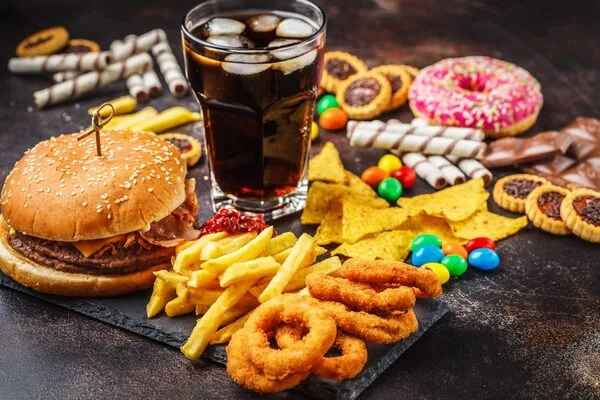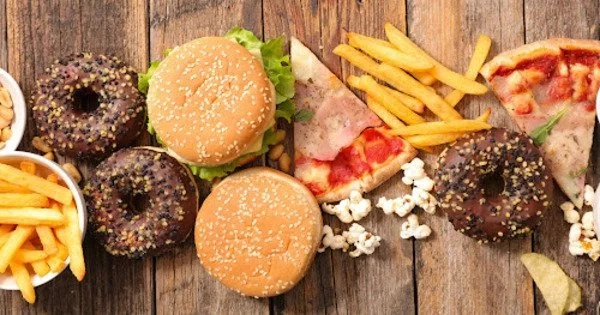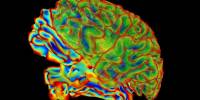Chronic stress can have an effect on our food choices, leading to a desire for comfort foods. When we are stressed, our bodies release stress hormones such as cortisol, which can have a variety of effects on our brain and behavior. Stress can override natural satiety cues, leading to increased food intake and sweet cravings.
When you’re stressed, a high-calorie snack may seem like a good way to unwind. However, this combination has a negative side effect. According to Sydney scientists, stress combined with calorie-dense ‘comfort’ food causes brain changes that lead to more eating, increased cravings for sweet, highly palatable foods, and excess weight gain.
The Garvan Institute of Medical Research discovered that stress overrode the brain’s natural response to satiety, resulting in nonstop reward signals that promote the consumption of more highly palatable food. This occurred in the lateral habenula, a part of the brain that normally dampens these reward signals when activated.
Our findings show that stress can override a natural brain response that reduces the pleasure gained from eating, implying that the brain is constantly rewarded to eat. We showed that chronic stress, combined with a high-calorie diet, can drive more and more food intake as well as a preference for sweet, highly palatable food, thereby promoting weight gain and obesity.
Professor Herzog
“Our findings show that stress can override a natural brain response that reduces the pleasure gained from eating, implying that the brain is constantly rewarded to eat,” says Professor Herzog, senior author of the study and Visiting Scientist at the Garvan Institute.
“We showed that chronic stress, combined with a high-calorie diet, can drive more and more food intake as well as a preference for sweet, highly palatable food, thereby promoting weight gain and obesity. This research highlights how crucial a healthy diet is during times of stress.”
The research was published in the journal Neuron.

From stressed brain to weight gain
While some people eat less during times of stress, most will eat more than usual and choose calorie-rich options high in sugar and fat. To understand what drives these eating habits, the team investigated in mouse models how different areas in the brain responded to chronic stress under various diets.
“We discovered that the lateral habenula, which is normally involved in turning off the brain’s reward response, was active in mice fed a high-fat diet for a short period of time to protect the animal from overeating.” When mice were chronically stressed, however, this part of the brain remained silent, allowing reward signals to remain active and encourage feeding for pleasure while no longer responding to satiety regulatory signals,” explains first author Dr. Kenny Chi Kin Ip of the Garvan Institute.
“We found that stressed mice on a high-fat diet gained twice as much weight as mice on the same diet who were not stressed.”
The researchers discovered that the molecule NPY, which the brain naturally produces in response to stress, was at the heart of the weight gain. When the researchers prevented NPY from activating brain cells in the lateral habenula of stressed mice on a high-fat diet, the mice ate less comfort food and gained less weight.
Driving comfort eating
The researchers then conducted a’sucralose preference test,’ in which mice were given the option of drinking water or artificially sweetened water.
“Stressed mice on a high-fat diet consumed three times more sucralose than mice on a high-fat diet alone,” says Professor Herzog. “This suggests that stress not only activates more reward when eating but specifically drives a craving for sweet, palatable food. We did not find this preference for sweetened water in stressed mice on a regular diet.”
Stress overrides healthy energy balance
“In stressful situations it’s easy to use a lot of energy and the feeling of reward can calm you down — this is when a boost of energy through food is useful. But when experienced over long periods of time, stress appears to change the equation, driving eating that is bad for the body long term,” says Professor Herzog.
According to the researchers’ findings, stress is a critical regulator of eating habits that can override the brain’s natural ability to balance energy needs. “This study emphasizes how much stress can jeopardize a healthy energy metabolism,” Professor Herzog says. “It’s a reminder to avoid a stressful lifestyle, and most importantly, if you’re dealing with long-term stress, try to eat a healthy diet and put the junk food away.”
















